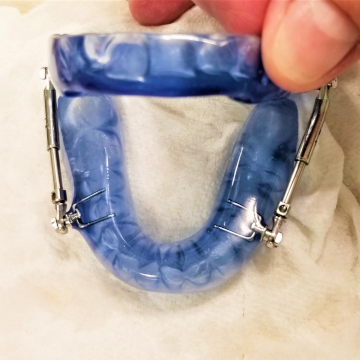 Santa Cruz and Scotts Valley CA
Santa Cruz and Scotts Valley CA
Can you identify your lingual frenum? This is a small piece of tissue that connects the underside of the tongue to the floor of the mouth. Everyone has this frenum in place but sometimes this tissue is too short and thus limits the tongue’s range of motion. When this occurs, a person has what is known as a tongue tie, and it is present from birth. Today on the blog, we want to inform parents in Los Gatos Scotts Valley, Santa Cruz and the surrounding areas of the Central Coast of California on how to look for signs of a tongue tie in children.
What are the warning signs of a tongue tie
A tongue tie manifests different problems in different stages of life.
Infants: For a newborn or infant with a tongue-tie, issues with nursing usually manifest, whether your child is breastfeeding or being bottle-fed. A restricted lingual frenum can lead to your baby having difficulty latching, needing to feed too frequently, or showing a failure to thrive. Other consequences include nipple damage for the mother, as well as diminishing the milk supply and hindering the bond between an infant and their mother that should develop while nursing.
Children: If a tongue-tie is not identified and treated during infancy, the potential problems can grow. Difficulties chewing and swallowing are the most reported problems, but a child also may experience problems with speech development, or abnormal growth of the face and jaws. The issues with speech may hinder your child’s self-confidence, and maintaining good dental hygiene could become a challenge. It’s also likely that if a tongue-tie is allowed to remain past infancy, your child will begin to develop unconscious habits to adapt to the limited range of motion in the tongue. These habits will have a negative impact on your child’s oral health and wellness.
Adolescence: If a tongue tie remains in place until a child reaches adolescence, those negative oral habits that developed during childhood have been present for more than a decade. These habits, combined with the continued lack of motion of the tongue, can lead to speech impediments, a nutritional deficiency, odd eating habits or a protruding lower jaw. The speech issues can cause major self-esteem issues, as well. An adolescent also may experience jaw pain, clicking or popping sounds as the jaws open and close, and frequent headaches—all symptoms of temporomandibular joint disorder. Other potential issues include a misaligned bite, frequent mouth breathing or the development of obstructive sleep apnea.
Tongue-tie diagnosis and treatment in Los Gatos, Santa Cruz and Scotts Valley in California
If you or your child is living with a tongue-tie, simply ignoring it is the worst thing that you can do. Failing to seek treatment means dealing with any combination of the above consequences. The best course of action is to have a tongue-tie identified as early in your child’s life as possible, and then have it removed. Our dentists, Dr. Max and Dr. Ariana Ebrahimian, are experienced and trained in the identification of a tongue tie and then providing treatment by releasing the tongue tie through a frenectomy performed with our LightScalpel laser. If you have questions about the frenectomy procedure or you want to have your child evaluated for a tongue tie, schedule a consultation at Ebrahimian Integrative Dentistry today. Call (831) 438-4411 or complete our online contact form.


